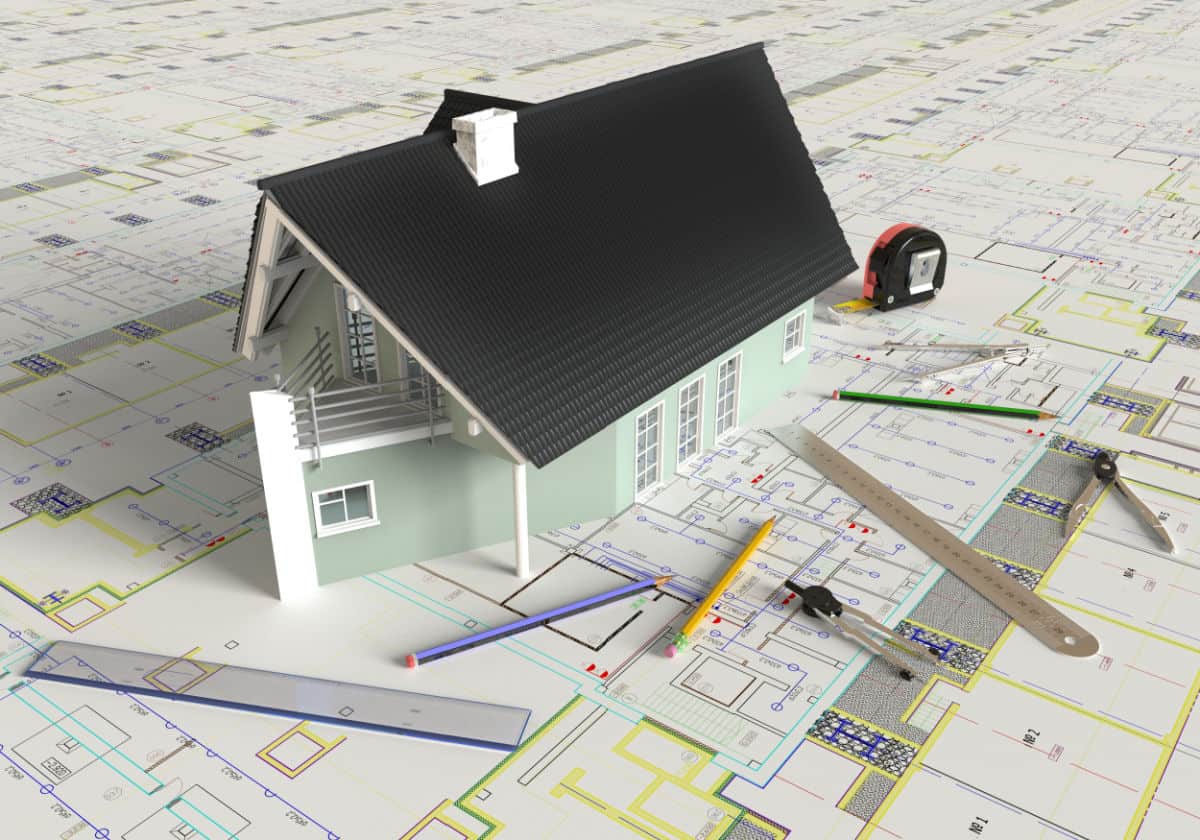Tiny homes are popping up all across the country as a new way to live cheaply and sustainably. With demand soaring, starting a tiny home building company seems like a perfect plan for success. But does the hype on TV and social media translate to the real world when it comes to selling these houses?
Building tiny homes can be profitable if you know how to follow the zoning laws and restrictions in your area. There are many uses for tiny homes other than as primary dwellings, and finding your niche in one of these areas can also help you turn a profit. Knowing your market will help you succeed.
There is a market for tiny homes right now, so finding the right niche for your skill sets and passions will lead you towards a successful tiny home building business. This guide will show you how it is possible to make money building tiny homes.
Look at the Tiny Home Sales Trend
The first thing that probably comes to mind when you think about building and selling tiny houses is exactly like selling single-family homes, just scaled down. It’s hard to pin down exact data on how many people live permanently in tiny homes, as many who choose tiny homes tend to stay off the grid. However, tiny home sales grew by more than 50% between 2018 and 2019.
That increase shows that there is demand for tiny homes, and it is projected to grow in the next few years. Debt-burdened millennials and baby boomers downsizing for retirement are two key sections of the market who want to purchase a tiny home as their primary dwelling.
Right now, this market is fairly crowded. With only about 700 homes built every year, you’d have to stand out in order to make a profit just by selling tiny homes as primary homes for individuals and families.
You’ll Need To Navigate Local Laws
While there may not be very many tiny houses on the market, that doesn’t mean people don’t want them. However, zoning laws and city ordinances in most places weren’t written with tiny homes in mind. Tiny homes don’t meet the same size and building requirements as traditional single-family homes, so they are often excluded from residential neighborhoods.
To make a profit building tiny homes, you must make sure it’s legal to build them in your area. Even if you aren’t building them at their final destination (or if you’re building tiny homes on wheels), you’ll need to know the size regulations and any specifications about power, water, and sewage hook-ups.
Some areas classify mobile tiny homes as RVs or campers, which have different regulations than permanent homes or tiny homes that sit on foundations. You’ll need to know what qualifies a home as a camper in your area, so you can avoid legal fees and other issues that can eat into your profits.
Get Into the Tiny Home Rental Business
If selling tiny homes as primary dwellings doesn’t seem like the kind of business you want, there are other options for turning the tiny home building into a profitable business. Selling them as rental properties, or renting out the ones you construct yourself, is another way to build your tiny home business.
Services like Airbnb make it easy for you to rent out tiny homes as vacation spots or temporary dwellings. Recreational use or vacation rentals are zoned differently from permanent homes, so you will have an easier time finding a place to build your tiny homes as well.
Renting tiny homes will take you longer to see a profit than selling them outright, but they’ll provide a steady source of income over time. Most rentals will recoup the cost of building them within a few years, and then the rest of the rental fees are maintenance and profit.
If managing a rental property isn’t what you want to do, you can also sell tiny homes to rental companies or recreational areas, which gives you the zoning advantages of a rental property with the immediate profit of selling the homes outright.
Find Your Tiny Home Niche for More Profits
Tiny homes are flexible and customizable by nature, and so are their uses. The philosophy behind the tiny house movement is about innovation and filling unique housing needs. Finding your niche in the tiny house world is the best way to make a profit.
Each area has its own challenges and strengths, so finding the niche that works best with your skill sets will help you sustain and grow your tiny house business over time.
Temporary and Transitional Housing
One area of the real estate market where tiny homes thrive is in temporary dwellings, like seasonal and transitional housing. These markets aren’t subject to the same zoning regulations as permanent homes and are generally set up in local communities, which means you could make multiple homes for the same client at the same location.
Industries with large populations of seasonal and temporary employees often provide housing for their workers. Farming, mining, drilling, and construction are industries that often need to house a large number of people in a short period of time. Rather than constructing dorms or barracks, providing tiny houses gives workers privacy and some home comforts.
Contracting with these industries is a great way to make your tiny home-building business profitable.
Another form of transitional housing you might want to consider is that tiny homes can help transition unhoused people into their own homes. Non-profit groups are building tiny house communities to help address homelessness in their cities, so building for this market is another option.
Granny Flats
Granny flats, mother-in-law quarters, or laneway houses–whatever you call them, tiny auxiliary homes on a larger house’s property are a great market for tiny house builders. This type of dwelling has separate regulations from regular houses, so they are easier to get approved.
Homeowners might want tiny homes on their property for relatives or rent out as another income source. Whatever the case may be, building tiny homes in people’s backyards is a clever niche for tiny home businesses.
Backyard “Rooms”
Similar to granny flats, building backyard structures for a specific purpose is another niche that avoids some of the tiny home zoning issues. Whether the tiny space is a home office, a man-cave, or a rec-room, tiny structures with a purpose are another great opportunity for tiny home builders.
Specialized Services
If none of these niches seem right for you, there are other more specific niches you could use for your tiny home business. Tiny homes require a lot of specialized work, from the complex storage and cabinetry to the unique plumbing and wiring needs.
Building tiny home furniture or making smart appliances and gadgets specifically for tiny homes are other ways you can focus your business on. You can even sell your architectural services or interior design expertise.
Conclusion
Tiny homes might be compact, but the market is constantly growing. As demand increases and regulations shift, tiny home building businesses are sure to grow as well. Making a tiny home business profitable takes research and hard work, but it is possible.
Keeping up with the trends, legal requirements, and regulations for your area will help your business continually turn a profit. Consider why you’re passionate about tiny houses in the first place. Finding your area of expertise will also help you stand out from other builders and make your tiny home building business as profitable as possible.

